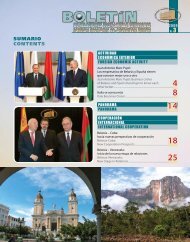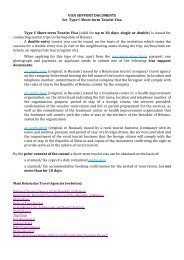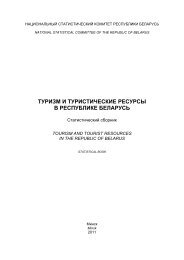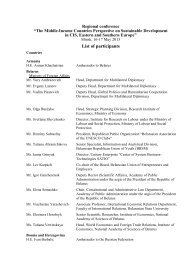Human Development Report 2013 - UNDP
Human Development Report 2013 - UNDP
Human Development Report 2013 - UNDP
You also want an ePaper? Increase the reach of your titles
YUMPU automatically turns print PDFs into web optimized ePapers that Google loves.
Good policymakingrequires greater focuson enhancing socialcapacities, not justindividual capabilitiesWhat worked in one country might havestood little chance in another.Nevertheless, the most successful countrieshave demonstrated that innovative andsometimes counterintuitive options can work.Paying parents to take their children to healthclinics may seem unnecessary, but as the caseof Mexico illustrates, it can work to improvechildren’s health; its conditional cash transferprogrammes have sparked interest around theworld. Similarly, using a mobile phone forbanking made eminent sense in Kenya andthe Philippines to people who had never hada personal bank account before and often livednowhere near a bank office.The countries of the South have thus beenusing their own ideas and energy to create anew momentum for human development. In acomplex global political, economic and socialenvironment, however, this dynamism may stillnot yield sustainable outcomes. Already thereare signs of rising inequality and frustratedexpectations that could lead to violent socialstrife. And there are serious concerns that overexploitationof global resources combined withthe effects of climate change could wreck theearth for future generations.That is why this <strong>Report</strong> has also focused onwhat is needed to ensure that human developmentproceeds in ways that are both productiveand sustainable. This includes measures aimedat enhancing equity, enabling voice and participation,confronting environmental pressuresand managing demographic change.Addressing these issues will demand considerableskill and commitment from nationalgovernments and civil society. As this chapterhas argued, it will also demand much morefruitful global cooperation as national governments,international organizations and anascent global civil society feel their way towardsnew models of mutual understandingand cooperation. Some of these will involverefashioning existing institutions to accommodatea new global power balance. Othersmay take any number of new institutionalforms.Through all this, the fundamental principlesof human development endure. As ever, theaim is to expand the choices and capabilities foreveryone, wherever they live. Many countries ofthe South have already demonstrated what canbe done, but they have gone only part of theway. For the years ahead, this <strong>Report</strong> suggestsfive broad conclusions.Rising economic strength in theSouth must be matched by a fullcommitment to human developmentInvestments in human development are justifiednot only on moral grounds, but also becausegood health, education and social welfareare key to success in a more competitive and dynamicworld economy. In particular, these investmentsshould target the poor— connectingthem to markets and increasing their livelihoodopportunities. Poverty is an injustice that canand should be remedied by determined action.There are sufficient global resources to achievethat goal, if they are directed towards thatpurpose.Good policymaking also requires greaterfocus on enhancing social capacities, not justindividual capabilities. Individuals functionwithin social institutions that can limit orenhance their development potential. Policiesthat change social norms that limited humanpotential, such as new legal strictures againstearly marriages or dowry requirements, canopen up additional opportunities for individualsto reach their full potential.As this <strong>Report</strong> highlights, one consequenceof the rise of the South is that most countriesnow have growing policy and fiscal space to setbold targets—to eliminate poverty, push forfull employment commitments and innovatetowards low-carbon pathways. More countriesare unencumbered by conditionalities often attachedto international aid and resource transfers,and the recent rise in commodity priceshas reversed the long decline in terms of tradefaced by many primary goods producers. 50 Thisprovides a cushion of resources that can bemanaged in ways that enhance national humandevelopment by governments committed toavoiding the “resource curse”.Projections presented in chapter 4 reinforcethis point. They show that with strong commitmentto human development and prudentmacroeconomic policies, it is possible to reducepoverty dramatically in Sub-Saharan Africa—aregion where baseline scenarios show a likelyfuture increase in the number of poor people120 | HUMAN DEVELOPMENT REPORT <strong>2013</strong>
















